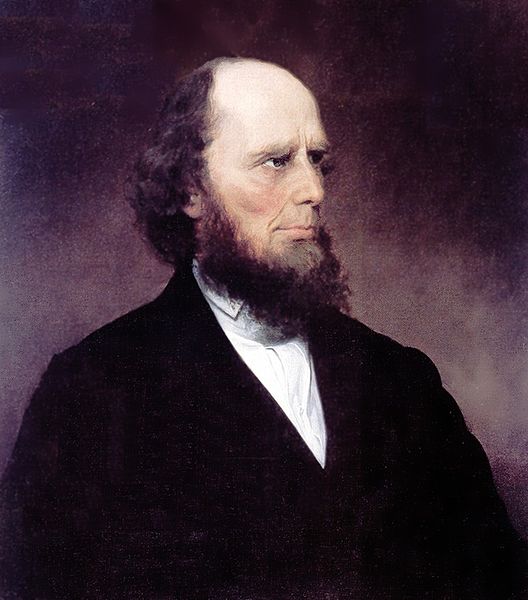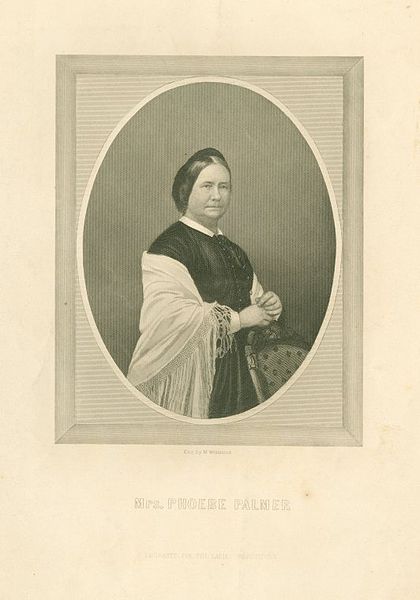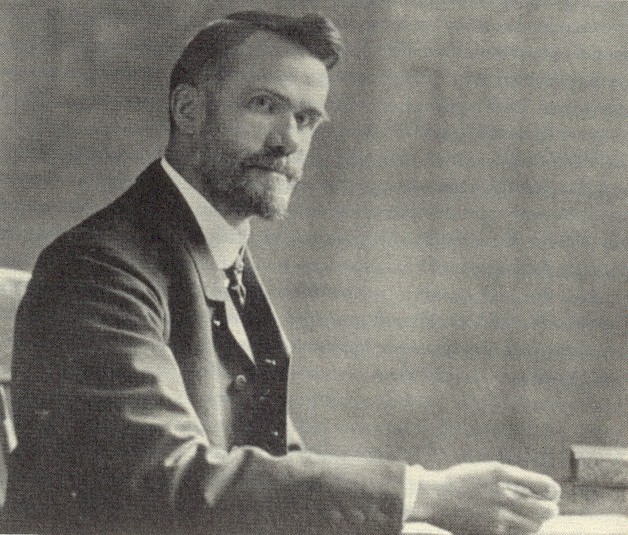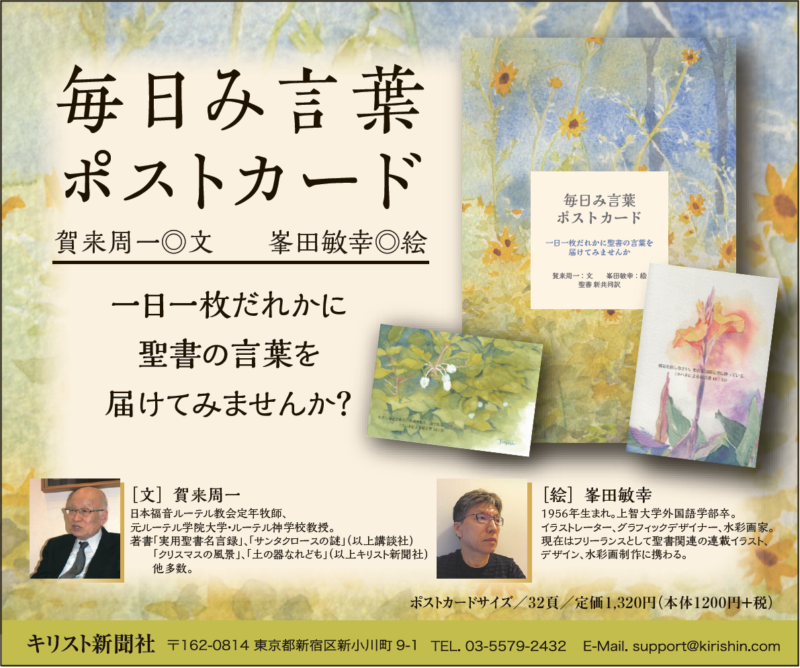(前編を読む)
崇高なる存在から方法論へ
From the Sublime to Technique
前回書いた「リバイバル」は、ある意味で啓蒙主義の合理性に対する反動であると、歴史家たちは指摘してきた。啓蒙主義はしばしば、理屈や科学に重きを置くことにより、宗教を疑問視させ、遠ざけさせるものだったからだ。芸術、文学、音楽、哲学にも影響をもつロマン主義は、さらに大きな反動だった。ロマン主義は、人間の問題について、直感と感情の役割を高く評価する。多くのクリスチャンは、「リバイバルは合理的に説明することはできず、神が介入した結果としか言えない」と指摘し、啓蒙的な価値観を軽蔑した。
Historians have noted that these revivals were in some ways a reaction against Enlightenment rationality, which often marshaled reason and science to question and marginalize religion. The larger reaction—Romanticism—encompassed the arts, literature, music, and philosophy, which together exalted the role of intuition and emotion in human affairs. Many Christians expressed their disdain for Enlightenment values by pointing to revivals and noting that they could not be explained rationally but only as products of divine intervention.

チャールズ・フィニー
しかし、すでに啓蒙的思想の影響を強く受けていたクリスチャンの中には、リバイバルを合理的に観察し、社会学的なパターンに気づく者もいた。そして彼らは、その発見を宣教運動に活(い)かすようになった。そのことで最も有名なのはチャールズ・フィニー(英国の伝道者で、第二次大覚醒の主要な指導者)だ。「宗教のリバイバル」についての講演の中で彼は、リバイバルは「いかなる意味でも奇跡ではなく、奇跡に依存するものでもない。これ(リバイバル)は、きちんとした手段を正しく使用した、哲学的(つまり科学的)道理に基づく結果でしかない」と主張した。リバイバルを生み出すために神がこの手段を与えられたと彼は信じているが、ティム・ケラーが言うように、フィニーの主張は、「どんなグループでも、どんな場所でも、正しい方法を用いればリバイバルは起こすことができる」というものだ。
But some Christians, already deeply influenced by the Enlightenment, looked at the revivals rationally and noticed sociological patterns. And they began applying them to their ministries. The most famous is Charles Finney. In his Lectures on Revivals of Religion,he argued that a revival was “not a miracle, or dependent on a miracle, in any sense. It is a purely philosophical [meaning, scientific] result of the right use of constituted means.” To be sure, he believed God gave these means to produce revivals, but as Tim Keller puts it, “Finney insisted that any group could have a revival any time or place, as long as they applied the right methods in the right way.
これによってキリスト教は、転機の宗教、自己決定の宗教、感情操作が中心の宗教に変わった。生ける神との本物の出会いの代わりに、驚くべき宗教体験を持つことによって神を知り、愛することを求める多くの人に感染するものになったのだ。以来、このことは常に私たちのアキレス腱(弱点)となった。
This morphed into a religion of crisis, a religion of decision, and a religion where the manipulation of emotion became the centerpiece. Instead of a genuine encounter with the living God, the movement became infected with too many who sought not so much to know and love God as to have a remarkable religious experience. This has been our Achilles heel ever since—more of that below.

フィービー・パーマー
中には、早い段階でこの堕落を警戒し、反応する者もいた。その理由はただ一つ。彼らにとってこの純粋な宗教的エクスタシーは、得ようとしても得られないものだったからだ。そのうちの一人、フィービー・パーマー(ホーリネス運動の創始者の一人)について、「クリスチャン・ヒストリー」に記事がある。信仰の転機の後、「信じること自体が救いの根拠であり、そこには『喜びの感情』は必要でないと彼女は悟った」、「『供え物と、供え物を清くする祭壇と、どちらが尊いか』というイエスの言葉から(マタイ23:19)、『祭壇の上に自らのすべてを献(ささ)げれば、神はそれを聖なるものとしてくださる』と彼女は信じた」。そして彼女は、「キリスト者の完全」というジョン・ウェスレーの教えを次の3段階のプロセスへと微調整した。「自らを完全に神に献げ、神が献げ物を聖別されることを信じ、そのことを人々に伝える」というものだ。
Some were alert to this corruption early on and reacted against it. One reason: Try as they might, this genuine religious ecstasy never came to them. One such person, Phoebe Palmer, after a crisis of faith, determined that “She didn’t need ‘joyous emotion’ to believe—belief itself was grounds for assurance,” as a Christian History article summarized it. “Reading Jesus’ words that ‘the altar sanctifies the gift,’ she believed that God would make her holy if she ‘laid her all upon the altar.’” She fine-tuned John Wesley’s teachings about perfection into a three-step process: “consecrating oneself totally to God, believing God will sanctify what is consecrated, and telling others about it.”
ここから「完全なる聖化」を中心としたホーリネス運動が生まれた。多くの人にとって信仰生活とは、神を追い求めることではなく、道徳的完全性を求めることになり、恵みを求めることではなく、欲望を押し殺して従順であることを意味するようになった。もちろん、聖霊の力に頼る必要があることには変わりはなく、多くの人が激しく聖性を追求したのは、神に出会うためだった。この運動は、プロテスタント的聖人を生み出す以上の影響をもたらした。しかし、その多くは予測されたとおり、宗教的ナルシシズムへと退化することになった。多くの信者が求めたのは、個人的な清さであり、聖なる神そのものではなかったのだ。
Out of this grew the holiness movement, where complete sanctification stood erect at the center. The life of faith became for many not so much a pining after God but after moral perfection, not so much seeking grace as pummeling the will into submission. No question that there was a need to depend on the power of the Spirit, and to be sure, many rigorously pursued holiness that they might see God. This movement produced more than its share of Protestant saints. But much of it also predictably degenerated into religious narcissism. For many, it was more and more about the pursuit of personal holiness and not so much the pursuit of the Holy One.
この個人としての生活改善への情熱は、すぐに社会的領域にも波及し、福音派の信者たちは刑務所の改革から禁酒、奴隷制度の廃止、都市部の貧困層救済まで、あらゆる社会の改革に努めることで知られるようになった。そして、一部では「社会的福音」運動が発展した。その運動の起こりに信仰があったこと、良い動機があったことは否定できない。
This passion for personal reform soon spilled over into the social realm, so that evangelical believers also became known for striving for the reformation of society—from prison reform to abstinence to the abolition of slavery to care for the urban poor. And for some, this blossomed into the social gospel movement, whose gospel origins and godly motives one cannot deny.

ウォルター・ラウシェンブッシュ
「社会的福音」の神学について、ウォルター・ラウシェンブッシュ(自由主義神学に立つ米国の牧師で、「社会的福音の預言者」と呼ばれる)は次のように述べている。「社会的福音の新しさは、社会に広まっている不正義から人類を救う必要性と可能性を明らかにする明確さと力強さだ」。今日の福音派はラウシェンブッシュの神学的リベラリズムを拒絶しているが、教会が持つ使命の本質について彼が強調したことは、福音派の中に深く織り込まれている。
Walter Rauschenbusch in his A Theology for the Social Gospel, said, “The new thing in the social gospel is the clearness and insistence with which it sets forth the necessity and the possibility of redeeming the historical life of humanity from the social wrongs which now pervade it.” Though evangelicals today reject Rauschenbusch’s theological liberalism, his emphasis on the nature of the church’s mission has woven itself into the very fabric of evangelical religion.
やがて使命(ミッション)と、それを取り巻くすべての活動が、まさに教会の存在理由となっていった(これについては今後に記す)。
Mission, and all the horizontal activity surrounding it, has become the very reason for the church’s existence. More of that in coming essays in this series.
ここでも繰り返し述べているが、神のためにそのような活動に取り組むことは素晴らしいことだし、表彰され、奨励されるべきことだ。この世界を愛することは、間違いなく教会の命題の一つだからだ。しかし、その使命がクリスチャンとしての生活の中心となると、私たちが過ごす日々は必然的に忙しくなり、神のいない生活へと退化すると私は信じている。効率的に任務を達成しようと努めるにつれ、それはますますテクニックに心奪われたものになる。集会の始めと終わりに祈ったとしても、心の深いところでは(フィニーが主張したように)「目的を達成するための手段さえあれば、神の特別な祝福は必要ではない」と考えるようになるだろう。(3に続く)
It must be said—and I’ll say it over and over in these essays—such activity for God is laudatory. It is to be commended and encouraged. One of the jobs of the church is indeed to love the world. But when mission becomes the center, the focal point of the Christian life, I believe that life will inevitably degenerate into an active and busy religious life void of God. It will become a life increasingly fascinated with technique as it seeks to efficiently accomplish mission. We may begin and end our missional meetings with prayer, but we know deep down, we don’t even need God’s special blessing if, as Finney argued, we already have the means at our disposal to accomplish our ends.
「クリスチャニティー・トゥデイ」(Christianity Today)は、1956年に伝道者ビリー・グラハムと編集長カール・ヘンリーにより創刊された、クリスチャンのための定期刊行物。96年、ウェブサイトが開設されて記事掲載が始められた。雑誌は今、500万以上のクリスチャン指導者に毎月届けられ、オンラインの購読者は1000万に上る。
関連




























